MO Tested: Sena 10C Motorcycle Bluetooth Camera & Communication System + Video

An ideal combination
Sena has been on a tear, lately. The Bluetooth communication company threw down the gauntlet with the release of the Sena 20S Motorcycle Bluetooth Communication System, bringing class-leading features and ease-of-use to the helmet communicator market. Then, back in December, Sena jumped into the action-camera fray with its Prism Bluetooth Action Camera featuring a unique Bluetooth audio recording capability. It might seem logical to sit back and let these two products gather market share. Instead, Sena has released a product that combines many of the key features of the 20S and Prism into one package that checks in at $349 – significantly less than the 20S/Prism combo, even with the recently lowered Prism price.
What you get in the 10C is a module measuring 4.2 in. x 2.4 in. x 1.2 in. that attaches to the left side of a motorcycle helmet. Within that module the video recording and communication features are largely separated, with the communicator taking priority. The camera cannot be operated without the communicator being powered on. In fact, if the module detects a low battery, it will shut down the camera, allowing the communicator to operate for an additional two hours before flatlining.
Mounting the 10C is similar to that of most helmet communicators. Speakers are inserted into the helmet’s ear pockets, and the wires are run under the lining. The microphone is either mounted on a full-face helmet’s chin bar or on a boom for open-face or modular helmets. The module itself has two mounting options: a clamp that fits between the helmet liner and shell or a glued surface-mounting plate. The 10C differs with most helmet communicators in that it sits slightly offset from the helmet surface because of the rotational adjustments necessary to get the camera pointed in the right direction on a wide variety of helmets.
Sound Operation
Like the 20S and many of Sena’s headset communicators, most functions are controlled via a jog dial which allows for rotational input, a button press, or a press/rotation combination. One other button on the rear of the module handles other inputs. As with the 20S and the Prism, Sena has developed iPhone and Android apps, offering the same level of function discussed in our 20S review. While using the app may be faster, the voice menus allow for easy adjustment of all the 10C’s features in both the communicator and camera – a fact that should make folks reluctant to buy smartphones happy.
The communicator offers Bluetooth 4.0, Headset Profile (HSP), Hands-Free Profile (HFP), Advanced Audio Distribution Profile (A2DP), and Audio Video Remote Control Profile (AVRCP), which simply means that it can integrate seamlessly with your smartphone for phone, GPS, and music. For intercom use, the 10C allows connections with up to three other Sena Bluetooth headsets. Pairing to one non-Sena headset via Universal Pairing is also possible. Range before dropping the intercom connection, as tested between a 20S and a 10C, was comparable to our previous experience, meaning on a winding road we could talk our way around a corner or two, but the unit’s range dramatically increases when in the line of sight.
“While the range out in the canyons isn’t too much more than line of sight or just around a couple bends, we tend to ride within the range of clear reception, anyway,” we noted in our review of the 20S. “As a rider approaches the edge of reception, their audio – both sent and received – begins to break up a bit, but it never forces excessive static into the conversation to the point that it made it impossible to communicate.”
Sena claims 17 hours of talk time for the 10C – a claim that is difficult to test – but the unit was able to be used extensively over a few consecutive days without needing to be recharged. This included phone calls, other interactions with a smartphone (GPS, music, voice command), and FM music via the built-in tuner. Overall, the audio quality was fine though it lacked bass when listening to music. The speakers were powerful enough to overcome wind noise at highway speed, even when wearing earplugs. However, sometimes the volume required to hear a conversation through earplugs at highway speeds on an unfaired bike led to some distortion.
This leads to our biggest criticism of the 10C’s communicator system: the lack of an auxiliary jack for use with noise-damping earphones. No in-helmet speakers can beat the noise attenuation of isolating in-ear monitors or the audio quality they provide at much lower volumes. This may be a deal-killer for riders who prefer this set up. While we’re picking nits, the smaller jog dial on the 10C is slightly more difficult to manipulate with gloves than the larger one on the 20S – though the intended user wouldn’t know this since s/he most likely won’t own both systems. With practice the jog dial can be used easily. It just requires a little more attention be paid to its operation.
Capable Camera
The front end of the 10C module prominently features the camera’s lens. Since different helmets require varying angles for the mounting of the 10C, the mounting bracket rotates over 360 degrees – although only a small portion of that flexibility is used. Once oriented at the proper angle for the field of view the rider desires, the mount locks the 10C securely in place. The lens rotates through a range of 30° to level the horizon in the video. A red tab on the top of the lens should point straight up for a level horizon. Fussy users will wish for a live preview function (as we requested in our Prism review) in the Sena smartphone app to fine tune the horizon adjustment.
The camera is controlled via a single button during typical use, with the jog dial needed only during setup. Settings include switching resolutions (1080p 30 fps, 720p 60, 30 fps), still mode from single shot to burst mode, and time lapse. Still images of the 3.5 megapixel variety can be captured with a brief camera button push even when recording video or in standby mode.
In addition to the traditional mode of recording video (where you press a button to start and stop the recording), the 10C has one cool new feature called video tagging, which allows the camera to record user-selected parts of a ride without filling up the Micro SD card. The 10C continuously buffers a one-minute loop, overwriting the previous information until the rider presses the camera button for one second. Then the camera saves the previous minute plus the next two minutes as a file before switching back to the buffering mode. The setting allows a rider to save only the video clips desired instead of chewing up gigabytes of storage of the boring segments of your ride.
Out on the road, Sena claims about two hours of battery life with the camera operating, and that seems about right. Unless you’re using video tagging, keeping the camera powered down when not recording is a good battery-saving measure. The video quality is comparable to that of the Prism which compares favorably to the industry standard action camera, the GoPro.
The camera has the option of including the audio that the rider is listening to, enabling on-the-spot soundtracks, as well as intercom conversions. Because the 10C’s camera is part of the helmet communicator, one shouldn’t be surprised to learn that the voice-over capability that we found so compelling in the 20S/Prism pairing is also part of the 10C’s bag of tricks. Additionally, Sena gives the 10C (and the 20S) the option of playing sideband audio (the rider’s voice from the microphone) through the speakers, giving auditory feedback of voice volume to give the rider a sense of their talking volume. A bit of practice is required to remember that talking in a normal speaking voice yields the best sound with the 10C.
We also noticed a bit more distortion creeping into the narration audio track when riding at highway speeds than with the 20S/Prism combo. When we contacted Sena about this, they expressed surprise since the 10C’s noise reduction is a newer generation than the 20S’. After much discussion, Sena sent us a production unit to replace the preproduction one they’d initially sent us. The result was much improved audio though my voice still sounds a bit gravelly. So, we’re chalking the problem up to a initial manufacturing glitch.
While we’re talking about the Prism and audio, we should state that the Prism can be paired with the 10C through the universal Bluetooth connection. This also allows the audio to be recorded on the Prism but lacks the remote control functions available when paired with the 20S.
A Great Compromise
The word compromise has a bad rap. Any human endeavor involves compromise, but the essence of a good compromise is the inclusion of important things and the exclusion of things that are not. The Sena 10C strikes that delicate balance of offering the most important features of its 20S/Prism siblings in a self-contained, reasonably priced package while stripping away the functions that increase cost and bulk. In addition, the 10C manages to unveil a new feature in the form of video tagging. Yes, we’d like it if the jog dial were a little bigger to ease operation while wearing gloves, and the lack of a headphone output jack seems to be a glaring oversight. Otherwise, the Sena 10C hits its target of real-world features in a compact package for a reasonable price. Visit Sena’s website for more information about the 10C.

Like most of the best happenings in his life, Evans stumbled into his motojournalism career. While on his way to a planned life in academia, he applied for a job at a motorcycle magazine, thinking he’d get the opportunity to write some freelance articles. Instead, he was offered a full-time job in which he discovered he could actually get paid to ride other people’s motorcycles – and he’s never looked back. Over the 25 years he’s been in the motorcycle industry, Evans has written two books, 101 Sportbike Performance Projects and How to Modify Your Metric Cruiser, and has ridden just about every production motorcycle manufactured. Evans has a deep love of motorcycles and believes they are a force for good in the world.
More by Evans Brasfield



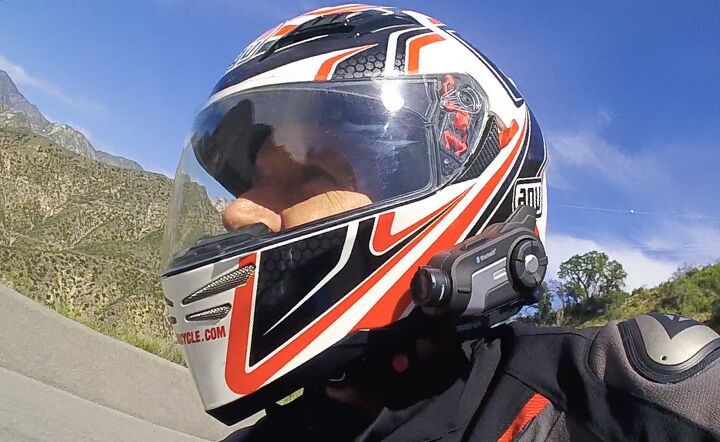
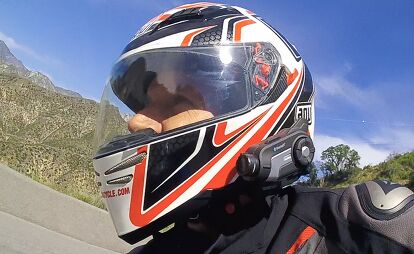











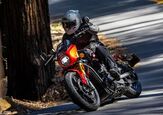
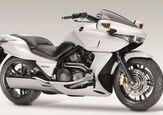
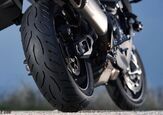
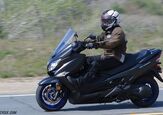
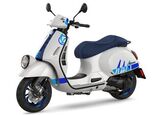




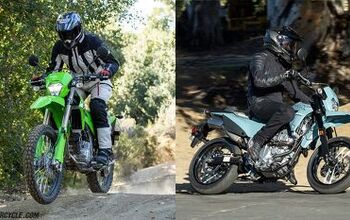
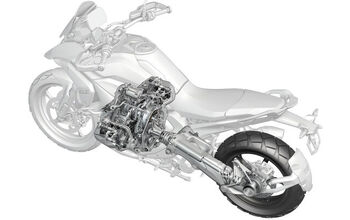
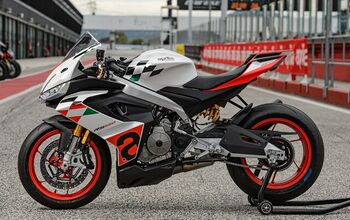






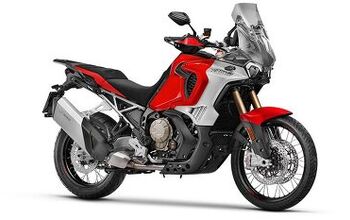


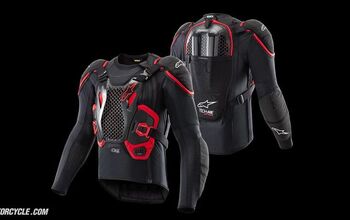
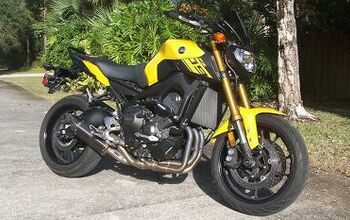
Comments
Join the conversation
Thanks for the review. I recently purchased a 10c, installed it on a modular helmet using the boom and no it is an audio recording distortion especially when the modular is closed including the shield. i'm wondering if you found a way to improve the audio recording on modular helmets?